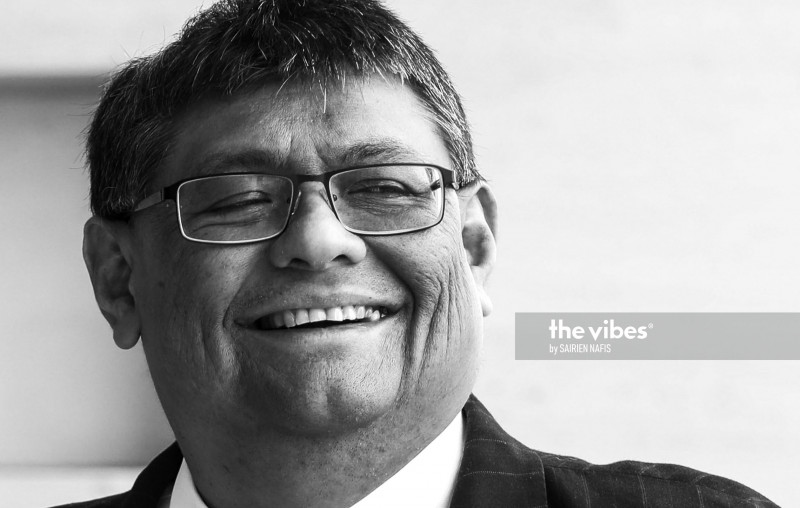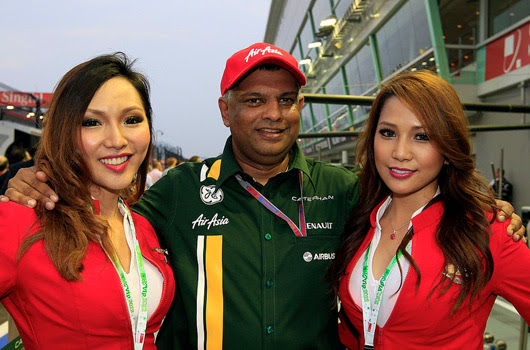Every diocese is divided into distinct parts which are known as parishes.1 A parish is a community of Christ's faithful whose pastoral care is entrusted to a Parish Priest. He is the proper pastor of the community, caring for the people and celebrating the sacraments. In the exercise of his office the Parish Priest acts under the authority of the diocesan Bishop.2
A parish may be either territorial (ie found within defined boundaries) or personal (ie composed of people of a particular rite, language or nationality).3
Appointment of a Parish Priest
While a priest is generally appointed who is known as the Parish Priest (or pastor in some countries), canon law also provides that the pastoral care of a parish, or group of parishes, can be entrusted to a group of priests. One of the priests must be appointed, however, as the moderator.4
A priest may also be appointed Parish Priest of a number of parishes.
Where there is a shortage of priests, a deacon, lay person or a community of persons can share in the pastoral care of a parish. In these circumstances, however, the diocesan bishop is obliged to appoint a priest to direct the pastoral care. This priest has all the powers and faculties of a Parish Priest.5
In these circumstances the use of titles such as "pastor," "chaplain," "coordinator," "moderator" or other such similar titles are reserved to that of a bishop or priest. Directing, coordinating, moderating or governing a parish belong to a priest alone. 6
In the absence of a Parish Priest the interim governance is undertaken by the assistant priest, senior by appointment, or by a Parish Priest determined by particular law. If the parish is vacant, a priest is appointed as administrator.7
A Parish Priest is appointed for an indeterminate period of time. However, the diocesan bishop can appoint a Parish Priest for a specified time. In Australia, by decree of the Australian Episcopal Conference, this is for six years.8 The bishop is free to renew the appointment for further periods of six years.
A Parish Priest can be transferred.9 At the age of 75 he is exhorted to submit his resignation which the diocesan Bishop is free to accept or not.10 In certain circumstances, a Parish Priest can be removed from office.11
Obligations of a Parish Priest
The Parish Priest has a twofold obligation: to proclaim the Gospel and work toward the salvation of souls.12 In the fulfilment of these duties he is to involve the entire parish community.
In summary we could say that he is involved in the following areas, either directly or indirectly:
- proclamation of the word of God, through preaching, teaching, catechesis and the promotion of Catholic education (cc 211, 213, 217, 757, 759, 761, 762, 767-771, 773-774, 776-777, 779, 788-789, 793-794, 796, 798);
- leading people in worship through the liturgy (cc 210, 213-214, 526 §2, 530, 534, 535, 834, 835 §4, 836-837, 839, 840, 843, 851, 857-858, 861, 877, 890, 895, 897-899, 912, 914, 920-922, 934, 937, 941-942, 959, 986-989, 998, 1001-1002, 1063, 1115, 1121, 1128, 1173-1174, 1176-1177, 1182, 1245, 1246-1253);
- leadership and service of the parish community (cc 212, 216, 226, 519, 529, 536, 545, 1285);
- seeing to the administration of temporal goods (cc 222, 231 §2, 532, 533, 537, 1214-1221, 1240-1243, 1254-1269, 1279-1310);
- promotion of mission outreach and support (cc 211, 225 §1, 233 §1, 528 §1, 771 §2, 781, 786, 788, 789, 791);
- promotion of social justice (cc 215, 22 §2, 225 §2, 768 §2).
Legal status of a parish
In order to provide for a legal recognition in church law, a parish is recognised in church law as ajuridic person. As the name suggests it is considered to be an entity in itself with legal rights and obligations in the same way as a physical person. At Church law it can own property, enter into contracts, seek remedy for damages and operate various apostolates. It can be amalgamated with another juridic person or it can be divided.13
It should be noted that, in Australia, parishes are not recognised as such in civil law. At best they are unincorporated associations and their rights are recognised through various legal instruments recognised by the civil law.14
Administration
In regard to administration of Church goods belonging to the parish, the Parish Priest acts for the parish. He is to ensure that the parish goods are administered in accordance with cc 1281-1288.15He fulfils this duty in accordance with canon and civil law.
The Parish Priest is obliged to establish a finance council and consult with it in accordance with the provisions of canon law.16 He is free to establish a parish pastoral council, unless diocesan law has made it obligatory.
Parish pastoral councils and parish finance councils enjoy a consultative vote only and cannot in any way become deliberative structures. Only those faithful who possess the qualities prescribed by the canonical norms may be elected to such responsibilities.
The Parish Priest presides at the pastoral and finance councils (though he can appoint a person to chair the meeting). Any deliberations entered into, (or decisions taken), by a pastoral or finance council which has not been presided over by the Parish Priest or which has assembled contrary to his wishes are to be considered as null and void.17
In administering the goods of the parish, the Parish Priest is required to act in the best interests of the parish. Once appointed as Parish Priest, the Church law gives him a rightful autonomy as a canonical administrator. As a separate juridic person the goods of the parish belong to it in canon law. Its goods cannot be appropriated for other purposes.
In the administration of the goods he is subject to the provisions of Church law in regard to acts of ordinary and extraordinary administration and alienation of the patrimony of the parish.18 He is also required to furnish an annual report to the diocesan Bishop19 and also to the members of the parish.20
As can be seen, the role of Parish Priest brings with it great responsibilities. Our modern age has imposed organisational burdens on his role which, if he does not share with others will reduce him to a functionary and a bureaucrat, a planner rather than a pastor. The Parish Priest is called to be, above all, a shepherd, a pastor. It is the task of all to support him in this role.21
Endnotes
- CIC canon 374 §1.
- CIC canon 515 §1.
- CIC canon 518.
- CIC canon 517 §1.
- CIC canon 517 §2.
- Congregation of the Clergy, Questions regarding the collaboration or the non ordained faithful in the sacred ministry, 15th August 1997, article 4,http://www.vatican.va/roman_curia/congregations/cclergy/documents/rc_con... [accessed 18 January 2010].
- CIC canons 539-541.
- CIC canon 522.
- CIC canons 1748-1752.
- CIC canon 538 §3.
- CIC canons 1740-1747.
- CIC canon 538.
- Brian Lucas, Peter Slack, William d'Apice, Church Administration Handbook (St Pauls, 2008), 66.
- Lucas, Church Administration Handbook,241.
- CIC canon 532.
- CIC canon 537.
- Questions regarding the collaboration or the non ordained faithful in the sacred ministry, article 5.
- CIC canon 1281 §2; canon 1291.
- CIC canon 1276.
- CIC canon 1287.
- Congregation for the Clergy, Instruction, The Priest, Pastor and Leader of the Parish Community, 2002, article 29,http://www.vatican.va/roman_curia/congregations/cclergy/documents/rc_con... [accessed 18 January 2010].
Bill d'Apice
Partner
Contact Details
P: 02 9233 9013
M: 0411 825 814
" Authoritative, knowledgeable, accessible."
Bill is an experienced lawyer with expertise in property law, commercial law and the law relating to not-for-profit groups. He brings clients the benefit of insights drawn from decades of legal service to charities and other not-for-profit organisations across many aspects of their activities, including structuring, tax exemptions and endorsements.
He is a co-author of the Church Administration Handbook.
Bill is a principal legal advisor to the Australian Catholic Bishops' Conference, various Catholic Archdioceses and Dioceses and many religious congregations. He advises many other charities and not-for-profit organisations. He is immediate past Chairman of the Board of Directors of Catholic Church Insurances Ltd and serves on a number of boards of public companies, private companies and charities.
He has been accredited by the Law Society of NSW as a specialist in property law.
Legal Expertise
- general advice to charities and not-for-profit organisations
- all aspects of commercial law with particular emphasis on corporate structuring, corporate governance and directors' duties
- all aspects of property transactions including large-scale property development involving expertise in environmental and local government law
- general advice to retirement villages and aged accommodation facilities
















 When passed in 2010, the UK Bribery Act was dubbed the “most stringent anti-corruption legislation in the world.” This was due in part to Section 7, which created an unprecedented form of vicarious liability at the time, with a potentially strong extraterritorial reach. Since then compliance professionals have wondered what implications this could have. And then came Airbus.
When passed in 2010, the UK Bribery Act was dubbed the “most stringent anti-corruption legislation in the world.” This was due in part to Section 7, which created an unprecedented form of vicarious liability at the time, with a potentially strong extraterritorial reach. Since then compliance professionals have wondered what implications this could have. And then came Airbus.